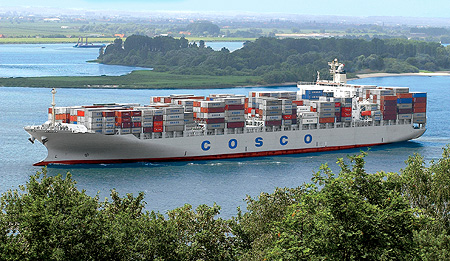 Last year Panamanians voted overwhelming approval of the planned expansion to the Panama Canal. Since its opening in 1920, the canal has been and remains, today, a vital link to East-West shipping between the Americas, Europe, and Asia.
Last year Panamanians voted overwhelming approval of the planned expansion to the Panama Canal. Since its opening in 1920, the canal has been and remains, today, a vital link to East-West shipping between the Americas, Europe, and Asia. 
Photo:The Nordcapital Group
Recent advances in ship design, however, have put pressure on the canal to refit its infrastructure to allow passage of supertankers, sometimes called “over-panamax,” or too large to transit the canal. The current width allowance of Panama’s locks system is about 32 meters wide, or 104 feet.
The largest supertankers in service today are on the order of 63 meters wide, almost double the width allowable through the locks at Panama.
The expansion, which is scheduled to be completed in 2014, will increase the canal locks’ capacity to 55 meters wide, about 180 feet. With that, the Panama Canal system will once again be open to all but the very largest carriers. Gulf ports like Tampa, Galveston, and Baton Rouge are already making plans to accommodate increased shipping schedules.
Perhaps the most significant outcome, however, is that by this timely upgrade to the Panama Canal, East Coast and European Union countries can once again transit the safer, faster route to Asia through the Panama Canal; the infrastructure that so influenced East-West trade from the mid-20th century will once again enable Panama to play a lead role in an increasingly competitive global market.
Related::
With the announcement by Dubai Ports World in December that it would sell to rival AIG its U.S. ports management operations, including seaports in New York/New Jersey, Philadelphia, Baltimore, Miami, Tampa, and New Orleans, the giant United Arab Emirates corporation signaled its exit from the North American market and pressure mounted once again for East Coast ports to refurbish and upgrade their infrastructure.
The move away from U.S. ports management by DP World had been widely anticipated following the storm of criticism surrounding the revelation that the UAE-owned company was managing port operations in several U.S. locations. Many “run-for-cover” politicians deemed the situation threatening to homeland security. Among them, New York’s then-mayor Rudy Giuliani and Senators Charles Schumer, D-NY, and Robert Menendez, D-NJ, claimed that the United Arab Emirates-based company constituted a grave security risk.
Now Menendez and Schumer, two of DP World's loudest critics last year, find themselves defending the company’s new deal and bemoaning the port agency’s “greed,” saying that the New York and New Jersey Port Authority’s demand for 84 million dollars in payments from the new owners for past improvements and future upgrades to infrastructure is unconscionable and will spoil the deal.
If the deal falls through, DP World might yet find itself in a position to capitalize on its market share of operations in western ports, a prospect that, perhaps, may not disappoint DPW’s investors, provided of course that the politicians can refrain from muddying the waters.
- Follow us on Twitter: @inthefray
- Comment on stories or like us on Facebook
- Subscribe to our free email newsletter
- Send us your writing, photography, or artwork
- Republish our Creative Commons-licensed content

